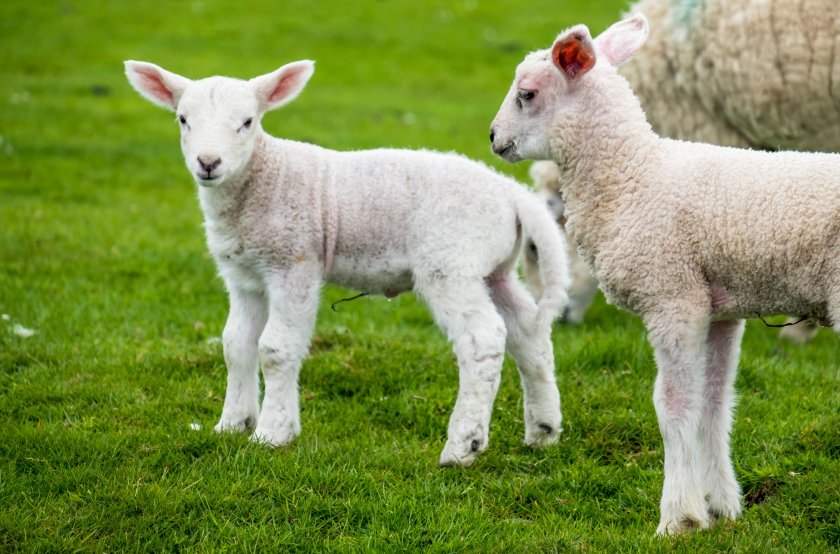
The government has set out new plans to minimise the impact of a likely outbreak of bluetongue as experts fear a surge in cases over the coming months.
Disease control efforts will initially focus on movement control of susceptible animals and their germinal products, such as semen and eggs, as a tool in the fight against bluetongue, Defra said today.
It added this would help stem the spread of the disease until a vaccine for bluetongue virus serotype 3 (BTV-3) becomes widely available.
In Europe, the Netherlands and Belgium have already approved a vaccine, but Defra said it was actively monitoring vaccine data from these countries before making a decision for UK approval.
It follows the Animal and Plant Health Agency (APHA) confirming a 'very high' probability of a new introduction of bluetongue into livestock in Britain via infected biting midges being blown over from northern Europe.
Last November, government vets at the agency identified the first case of the disease in Britain through the annual bluetongue surveillance programme.
Since then, there have been 126 bluetongue cases confirmed in England across 73 premises in 4 counties, with the last case confirmed on the 8 March 2024.
Bluetongue virus is primarily transmitted by biting midges and affects cattle, sheep, and other ruminants such as goats and deer, and camelids such as llamas and alpacas. The virus does not affect people or food safety.
Responding to the new disease framework, Biosecurity Minister Lord Douglas Miller said it was vital to proactively plan and prepare for any potential bluetongue incursion.
“We are actively engaging with vaccine manufacturers and industry about access to a safe and effective BTV-3 vaccine that has undergone thorough due diligence.
“All disease control decisions will be kept under constant review to ensure they remain proportionate and as effective as possible in controlling the spread of the disease.”
The framework confirms that upon first detection of disease in England, 20km movement control zones will likely be established to prevent the movement of potentially infected animals and germinal products transporting disease to new locations.
Movement control zones will be no bigger than is necessary to contain and slow disease spread, the government said.
They will be kept under review and will be modified or withdrawn when they are no longer proportionate if disease circulation becomes widespread. Movement of animals within zones, as well as moves to slaughter will be permitted.
Defra confirmed that free testing will be offered for animals moving from the highest risk counties to live elsewhere in Britain to help guard against animal movements potentially transporting undetected disease to new areas. Tests will become available once the risk level increases.
Upon first detection of bluetongue virus, if there appears to be limited local spread, bluetongue control zones will be put in place alongside limited culling of infected animals to contain and eradicate disease.
The government said keepers will be compensated the market value for any animals culled.
However, it said that culling of infected animals will be limited as once bluetongue is known to be circulating in biting midges in an area, culling of livestock is not an effective control measure.
Explaining more about the situation, the UK's Chief Veterinary Officer Dr Christine Middlemiss said the likelihood of bluetongue virus entering Britain was increasing.
She urged farmers to register their livestock and land with APHA with up-to-date contact details so animals can be located in the event of an outbreak.
Dr Middlemiss said: “The framework sets out how we will work to minimise the impact of a potential outbreak of disease, using the latest scientific and veterinary advice to reduce disease transmission as much as possible.
“I would urge farmers to remain vigilant and report any suspicions to APHA.”
Suspicion of bluetongue virus in animals must be reported to APHA on 03000 200 301 in England, on 03003 038 268 in Wales and to the local Field Services Office in Scotland.
